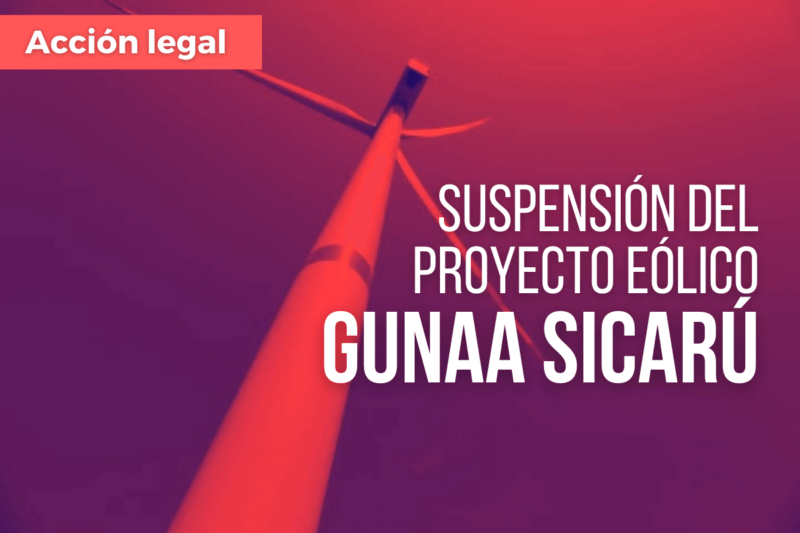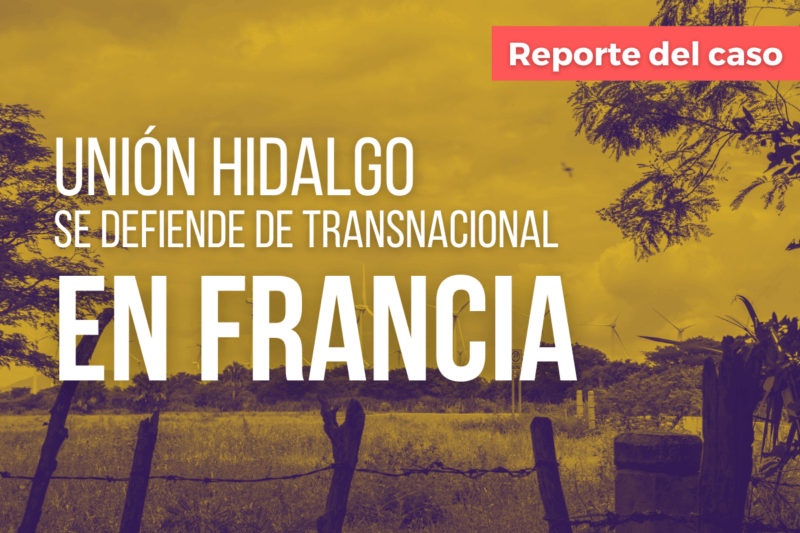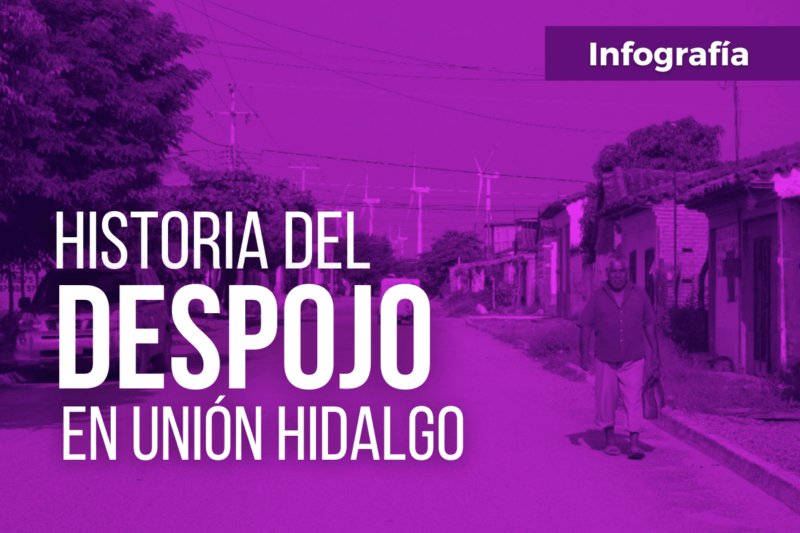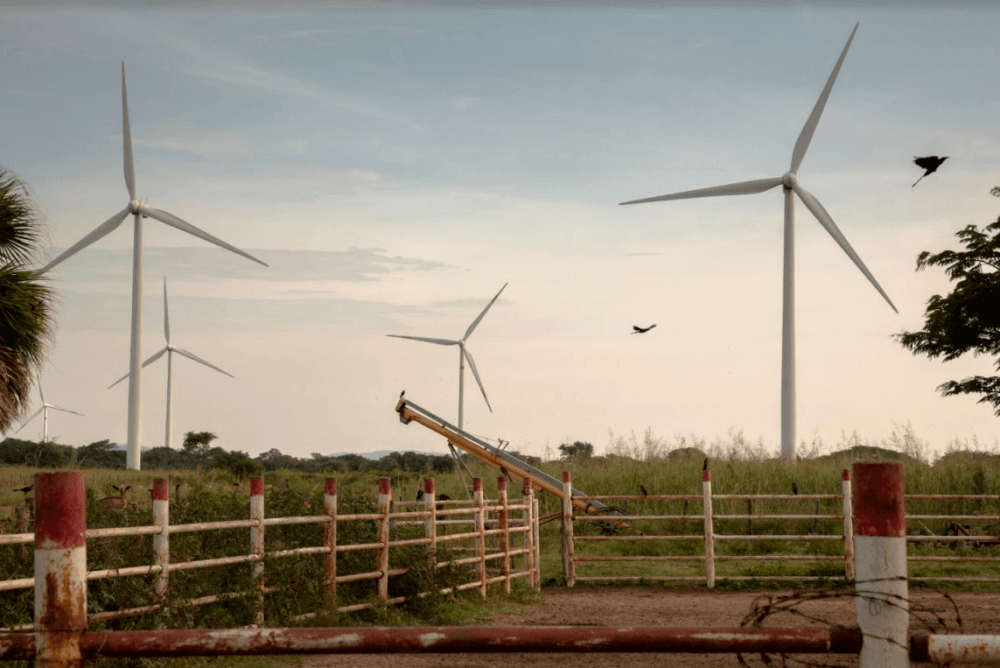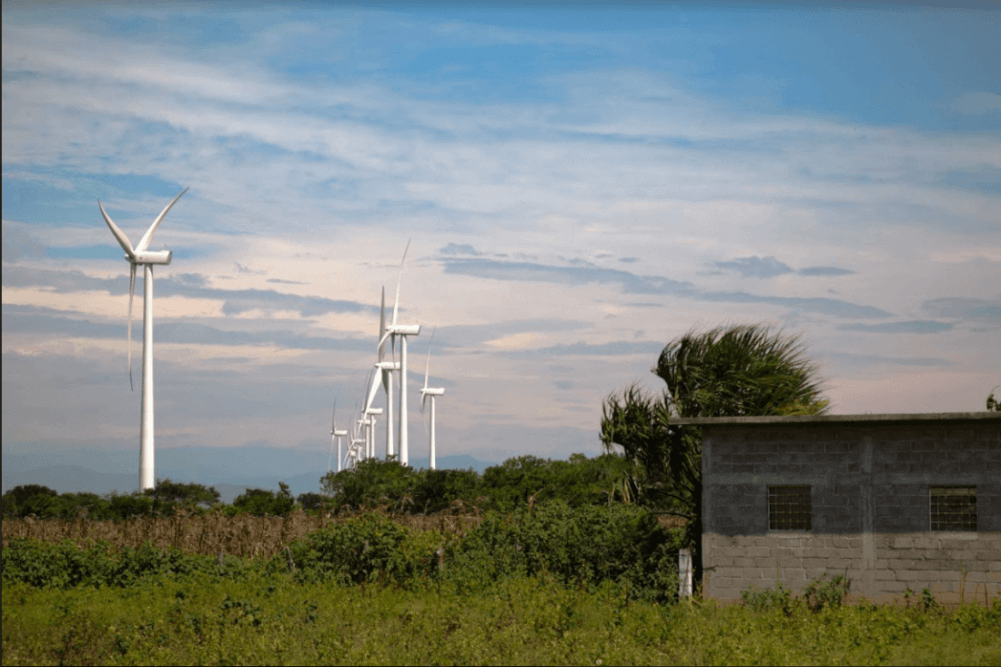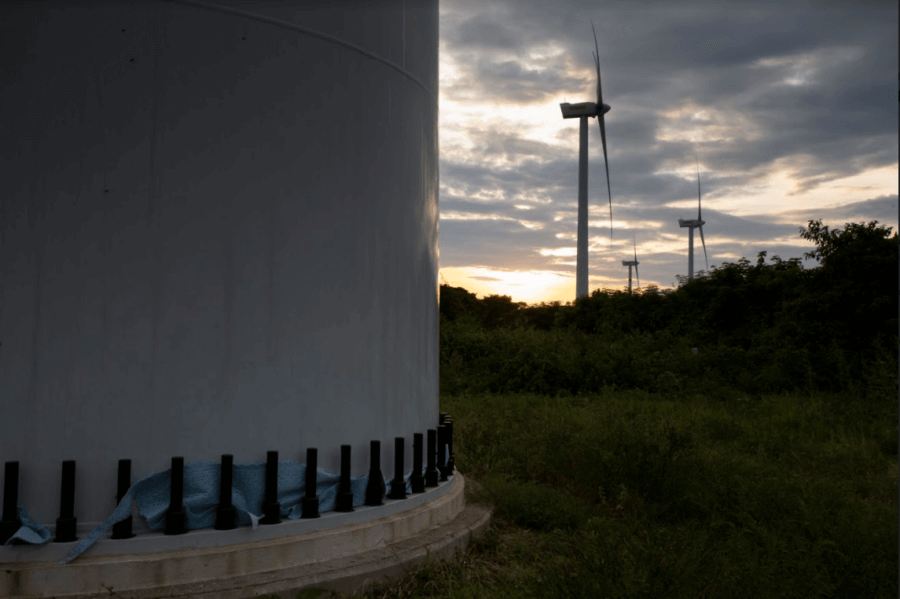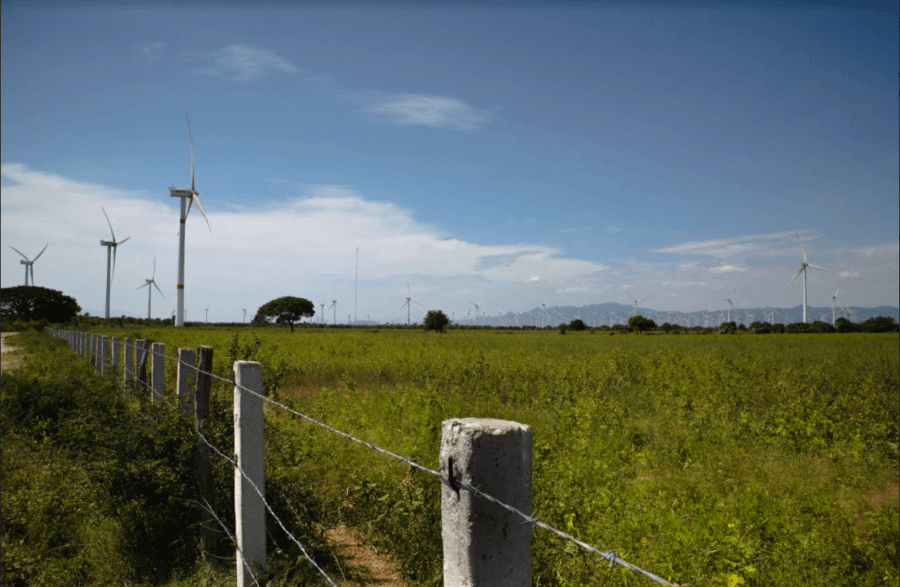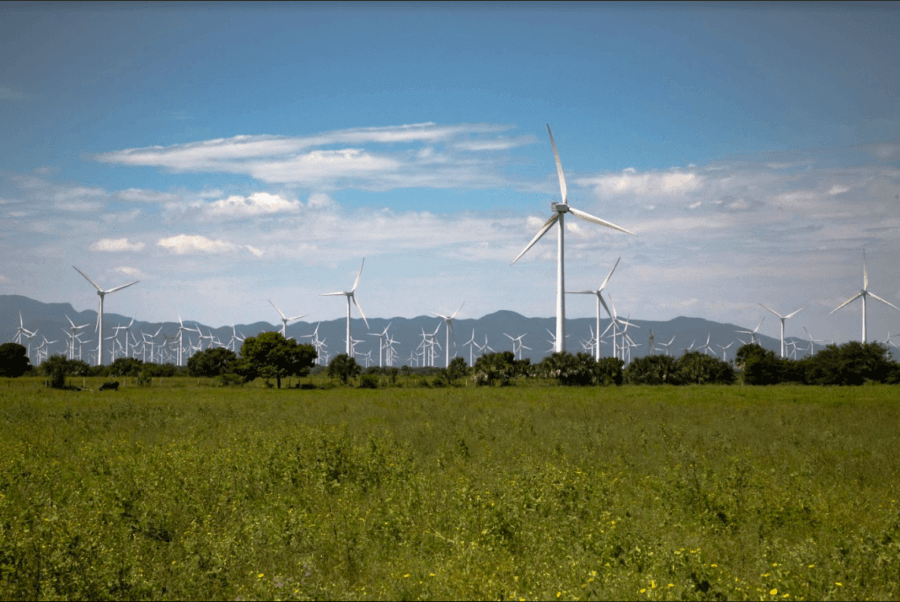Although France adopted the Duty of Vigilance Law in order to protect human rights and prevent violations resulting from its commercial activities, women and men community defenders in Uganda and Unión Hidalgo are at risk facing megaprojects carried out by two important French companies. This is unacceptable.
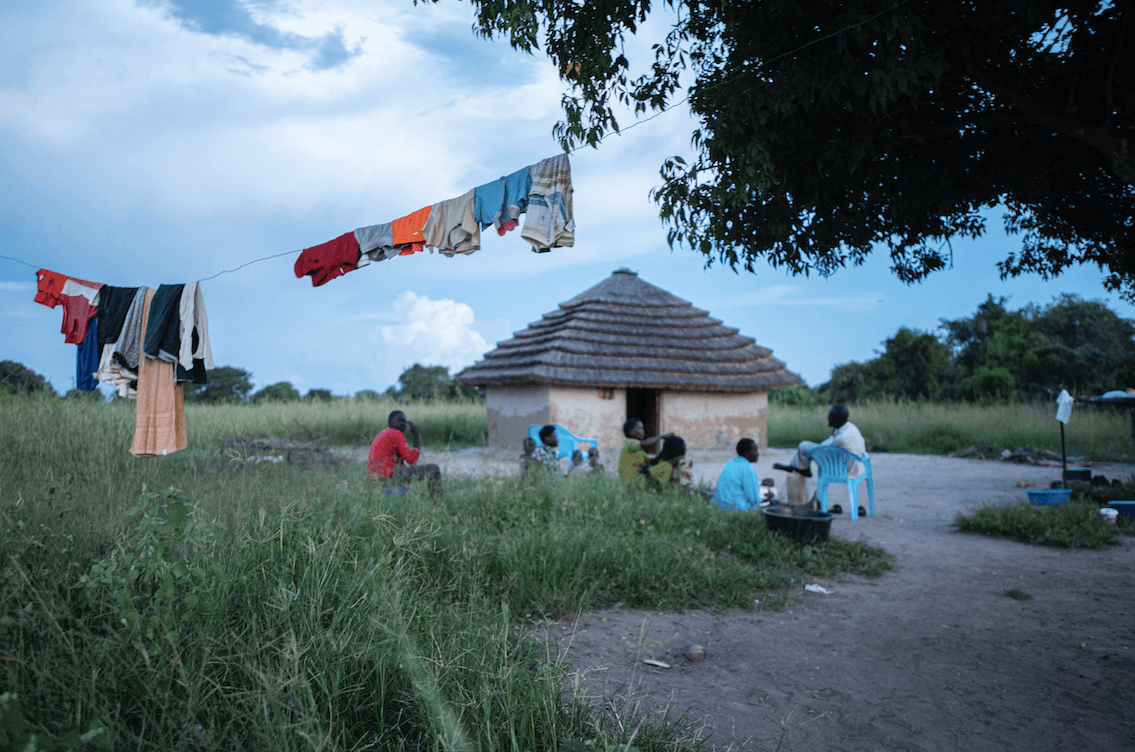
Fotografía: Amigos de la Tierra Francia
THE DUTY OF VIGILANCE LAW WAS PASSED THREE YEARS AGO AND THE PATHWAY LEADING TO ITS IMPLEMENTATION HAS BEEN FAR FROM SMOOTH FOR THE COMMUNITIES AND HUMAN RIGHTS DEFENDERS BOTH IN THE TERRITORY AS WELL AS FROM A LEGAL POINT OF VIEW.
Transnational corporations play an important role in perpetrating, contributing to, or endorsing human rights violations against communities defending the environment or land against large-scale corporate projects.
Despite the fact that the authorities do not ensure the protection of the human rights of the affected communities, transnational corporations nonetheless keep moving forward with their projects.
In addition, transnational corporations influence the community’s decision-making regarding their projects:
Promising community members benefits from their projects, interfering with the community’s participation mechanisms; and
Generating splits and polarization within the community.


A human rights-based approach with a gender and intersectional perspective is required for the French Duty of Vigilance Law to be able to develop its full potential as a preventive mechanism.
The application and implementation of the Duty of Vigilance Law must take into account, not only commercial perspectives, but also the perspective of those who are affected. For this reason, as civil society organizations, we are making the following call:
UNIÓN HIDALGO FILES A LAWSUIT AGAINST EDF IN PARIS FOR HUMAN RIGHTS VIOLATIONS
EDF, a French multinational electric utility company, is considered responsible for committing violations against free, prior, and informed consent, as well as attacks against human rights defenders during the implementation of the Gunaa Sicarú wind power park project.
The lawsuit requests that the project be suspended until EDF complies with its human rights obligations.
The community was forced to go to court in Paris because of a lack of response by the company and the Mexican government.

PRESS CONFERENCE:
Unión Hidalgo community defenders demand the suspension of the transnational EDF wind power project.
Unión Hidalgo
Unión Hidalgo, an agricultural community, is defending its right to land, territory, and natural resources against the wind power industry that established itself in the Isthmus of Tehuantepec without respecting the communal status of the land or the human rights of indigenous peoples.
Unión Hidalgo forms part of the indigenous Zapotec community of the Isthmus of Tehuantepec in Oaxaca. In 2004, some communal land holders of this community individually signed leasing agreements with the company called Wind Power Development of Mexico (Desarrollos Eólicos de México S.A de C.V/DEMEX), an affiliate of Spanish company Renovalia Energy for the construction of Phase I and II of wind power park Piedra Larga.
These agreements were signed without respecting the communal status of the land, without information in the Zapotec language, and without information about the effects that the project would cause, such as damage to crop lands, soil pollution by the use of wind turbine oils, and the decrease of their land’s productivity, which also affects the local economy.
With ProDESC’s comprehensive accompaniment, in 2013, the organized communal land holders from Unión Hidalgo began the legal defense of their land, demanding the annulment of the leasing agreements. This legal process is still in effect in the Collegiate Court on Civil and Administrative Matters in Oaxaca since a sentence has not been issued recognizing the human rights violations committed by the company against the communal land holders, nor has the court ordered the cancellation of the leasing agreements in order to return the land to the community.
Meanwhile, Unión Hidalgo faces the latent threat of the establishment of other foreign-owned wind power parks, for which in 2017 the community had to begin a new legal process in the Seventh District Court based in Salina Cruz, Oaxaca against the issuing of permits to other companies without free, prior, and informed consultation or consent.


